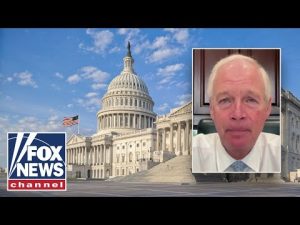In a recent flurry of Supreme Court decisions, several rulings have resonated throughout the nation, with a particular focus on the implications for immigration law, parental rights, and the ever-present tug-of-war over the powers of the federal government. Among these decisions, the case of Trump versus Casa stands out, as it affects the ability of federal courts to issue sweeping injunctions against executive actions—essentially putting a check on an “imperial judiciary.” The Court’s ruling signals a potential reevaluation of birthright citizenship and opens doors for adjustments in immigration law, wielding significant influence over how the executive branch can operate in the future.
In the Trump case, the Supreme Court took a firm stance against the overreach of federal judges, which many have criticized for undermining the separation of powers. This ruling is expected to curtail the ability of judges to halt executive actions on a national scale, asserting that the presidency isn’t a monarchy, but neither should the judiciary act like one. This decision was met with approval among conservatives who argue for a more limited role for the judiciary and an increased emphasis on the powers granted to the executive branch.
In the second substantial case, Kennedy versus Braidwood Management, the Court ruled on the structure of a task force under the Affordable Care Act (ACA) that decides which preventative services insurers must cover. Here, the decision held that members of the task force could be appointed by the Secretary of Health and Human Services without needing Senate confirmation. While this ruling may seem obscure, it indeed has large implications for the healthcare system, as it reinforces the status quo of the ACA, expanding the authority of federal bureaucrats over healthcare provisions. The dissenting justices raised concerns about the reach and influence of unelected officials in decisions that deeply affect millions of Americans’ health coverage.
Meanwhile, the FCC versus Consumer Research case highlights the ongoing debate over delegation of power in the digital age. The Court’s ruling, again siding with more comprehensive federal authority, allows federal agencies to maintain the power to delegate responsibilities to private entities. This decision has caused disappointment among those who believe that a tighter grip on bureaucratic powers is essential for preserving local communities, particularly as it pertains to issues like internet access and rural broadband expansion.
However, the most noteworthy ruling for many came in the case of Mahammud versus Taylor, which concerns parental rights related to LGBTQ curricula taught in schools. The Supreme Court’s decision holds that parents can have a say in their children’s education when it comes to topics that conflict with their religious beliefs. This ruling is a huge win for families advocating for the right to opt-out of classes that teach content they find objectionable. It sends a clear message about the importance of parental authority in educational settings, which resonates profoundly with many conservative Americans who fear the growing influence of the state in family matters.
As the Court continues to navigate these challenging issues, mixed outcomes have left citizens pondering the future shape of the nation’s laws. The judgments reflect a court striving to balance individual rights, parental authority, and the scope of federal power — all while coming under scrutiny from both sides of the political spectrum. The upcoming decisions on free speech and gerrymandering could further reveal the judiciary’s evolving role in American governance. One thing is clear: as this Supreme Court session unfolds, it promises to impact the fabric of American society for years to come.







